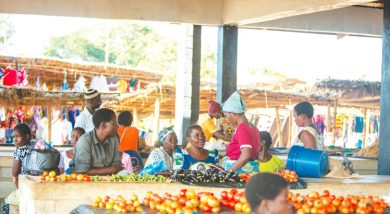Cost of living, earning gap too wide—CfSC
Centre for Social Concern (CfSC) has said low income earners in the country’s cities are facing economic challenges because the gap between the cost of living and their earnings is wide despite the cost of living declining by 0.56 percent.
In May, Minister of Finance, Economic Planning and Development Goodall Gondwe announced in Parliament that government will effect a 15 percent increment for low-ranked junior servants, saying the economic environment in the country require tightening the belt despite the pressure for increased salaries.

However, Civil Servants Trade Union (CSTU) and Teachers Union of Malawi (TUM) argued that the increment does not reflect the harsh economic situation on the ground.
Some staff from private firms have also been downing their tools to force management to raise their perks in line with the tough economic environment.
CfSC says that although June has seen a slight reduction in the cost of living from a national average of K166 597 in May to K165 660, the drop is insignificant for low income earners who are still facing many economic challenges.
“The gap between the cost of living and what they get at the end of the month is too wide, more especially during the time of food shortage, as maize is also the main commodity, which increases the cost of living in Malawi. Poverty and hunger go together, are intimately connected, which is why the SDGs target elimination of both,” reads the report in part.
The report further indicates that four commodities namely maize, tomatoes, onions and sugar had distinct figures, which contributed to changes in the cost of living as prices of maize and sugar increased by 17 percent while prices for tomato and onions dropped by 30 percent within the same month.
“Although maize, which is usually the main determinant increased with a national average of 23 percent among the cities, it failed to increase the cost of living due to a significant reduction price fall of seasonal agricultural produce such as tomato and onions of which, between May and June, the prices dropped by 28 percent and 32 percent respectively,” says the report.
CfSC observed that the increase of maize prices to affordable levels is connected with the effects of climate change that hit the sub-Sahara regions including Malawi, which affected agricultural production, more especially in rural areas as the urban population mostly relies on the rural maize production for its daily consumption, the impact of climate change has equally been felt in urban areas.
The report has since called for collaborative efforts by stakeholders to institute and implement practical short, medium and long-term strategies that will decrease peoples’ suffering and ensure food security.
CfSC also advised government to step up efforts by various stakeholders to provide farmers in flood and drought affected areas with early maturing maize seeds, cassava cuttings and sweet potato vines so that farmers can make use of residual moisture and also engage in winter cropping.
In the June Basic Needs Basket statement released last week, the centre stressed the need for government to take the leading role in the task and ensure that necessary extension advisory services are available since in most areas government extension workers are virtually none existent.
“Furthermore, the government should also consider introducing income Generating Activates [IGAs] in the flood and drought affected areas so that the people are empowered to recover their livelihoods and be weaned off from the handouts, which they are relying on currently.
“It is commendable that, as a short term measure, the Illovo Sugar Group has planted maize that can cover part of the deficit instead of using much of the already scarce forex for maize importation,” reads the statement in part.
The figures show that the cost of living for Blantyre, and Mangochi increased in June by 0.03 percent and 4.3 percent respectively while for Lilongwe, Zomba, Mzuzu and Karonga the cost of living dropped by 2 percent, 0.26 percent, 1.9 percent and 4 percent respectively between May and June.





